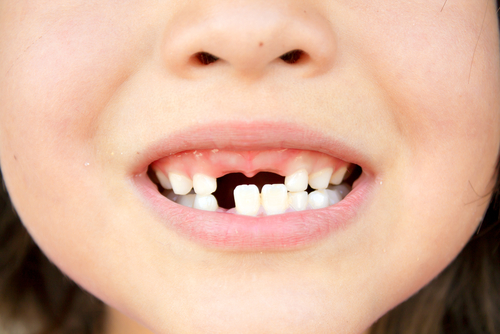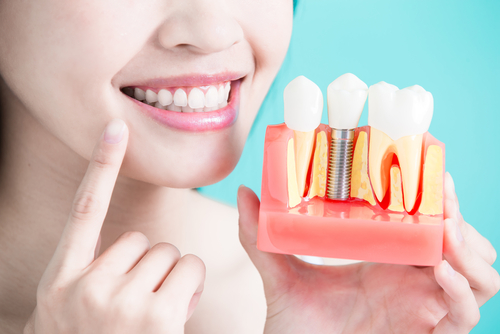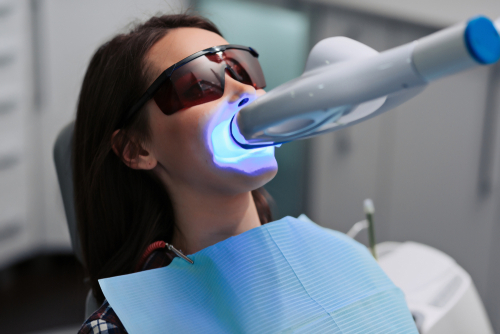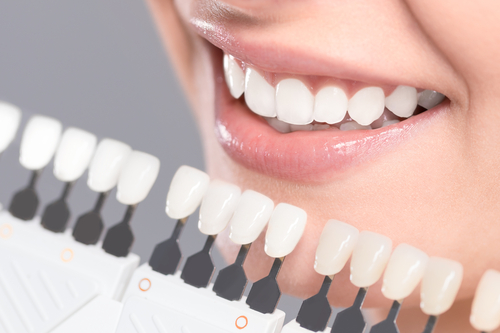
Why Are My Child’s Teeth Not Growing?
January 11, 2022
Things To Know Before Getting Dental Implants
March 16, 2022Are There Any Side Effects With Teeth Whitening?

Are There Any Side Effects With Teeth Whitening? If you are thinking about having your teeth whitened, there is one thing that stands out above all others: the question of side effects. Can anything go wrong with bleaching? There can be some side effects to teeth whitening, but they are not as serious as many people believe.
Teeth whitening involves bleaching the enamel of your teeth so they will appear whiter. It is possible for this process to remove a small amount of enamel from the teeth, but this should not cause any problems if you have healthy teeth.
People often wonder what kind of side effects there might be with teeth whitening and how serious they might be. Some of the most common side effects are described here, along with their potential severity.
1. Tooth Sensitivity
Table of Contents

It is common for people to experience tooth sensitivity during teeth whitening. This is usually temporary but can be very severe in some cases. When the enamel of your teeth is bleached, it exposes the dentin layer of your teeth. Dentin contains thousands of tiny tubules that run from the surface to the pulp of your teeth.
Normally, saliva and liquids flow through these tubules to keep the pulp hydrated. If the fluid cannot reach the pulp of your teeth because they are sealed off by enamel that has been bleached away, then tooth sensitivity can occur. Tooth sensitivity usually stops within a few days after teeth whitening, but it can happen for up to a month after the procedure.
2. Swollen Gums

One of the most common side effects of teeth whitening is swelling and inflammation in your gums. This usually occurs because your gums have been damaged during the bleaching process, although this is not always obvious. As your gums become irritated by the chemicals in teeth whitening agents, they grow swollen.
You may also notice some bleeding in your gums after teeth whitening. Swollen gums usually go away within a few hours after you finish teeth whitening. This is not very serious unless the swelling is extremely painful.
3. White Spots on your Teeth

White spots on your teeth are quite common with teeth whitening because the enamel of your teeth has been worn away during this process. You may notice white marks or patches on your teeth where the enamel has been removed.
White spots are more likely to occur when you have had your teeth whitened several times because the enamel of your teeth is worn away each time you bleach them. White spots on your teeth should go away within a few days to a week after each bleaching session.
4. Tooth Discoloration

Some people report that their teeth have become a little more yellow after they have had their teeth whitened. Teeth whitening is a process that does remove some of the enamel on your teeth, and this can expose the yellowish tinge underneath your teeth. This usually goes away within four to six months.
If you have teeth that are naturally yellow, you may not notice any difference in the color of your teeth after they have been whitened. Tooth discoloration should go away completely within a few months. If you have stained teeth from smoking or tea drinking, your teeth will usually return to their normal color on their own after a few months.
5. Swelling or Soreness in your Mouth

Swelling and soreness in the tissues of your mouth are common with teeth whitening. Your gums, jaw, cheeks, and sometimes even your lips may become swollen or irritated after you have had teeth whitening done because there are very sensitive nerves in these tissues.
Swelling and soreness in the tissues of your mouth usually go away within a few hours after you have finished bleaching your teeth, but it can sometimes take a day or two to go completely. If you feel that your teeth are too sensitive after whitening, ask your dentist if you can use a special gel to alleviate the discomfort.
6. Toothache

Teeth ache is a common side effect that some people experience during teeth whitening. This can be quite serious and should be described to your dentist if you notice it happening. If the bleaching agent is too strong for your particular set of teeth, it can eat away at the enamel and expose sensitive nerves in your teeth.
Toothache usually goes away within a few hours after you have finished teeth whitening, but it can sometimes last for up to a day or two. Your dentist may prescribe some painkillers to help relieve the ache if it is severe.
7. Bumps on your Gums

This is a pretty rare side effect because it usually only occurs if you have extremely sensitive gums. Bumps on your gums can make teeth whitening uncomfortable and should be reported to your dentist before the process continues. It is quite normal for bumps on your gums to go away within a few days.
8. Dental Problems

Dental problems such as cavities can be made worse by teeth whitening. Your dentist should thoroughly examine your mouth before you bleach your teeth to make sure that there are no dental problems that could be exacerbated by the process.
If you do have a cavity or other problem in your mouth, your dentist will usually recommend that you see a dental specialist to treat any existing problems before having your teeth whitened. Dental problems can usually be treated and fixed relatively quickly, so any temporary discomfort should go away within a few days or weeks after the process is completed.
If you have a serious dental problem such as a cavity, you will need to seek treatment from a dental specialist once the teeth whitening process is complete.
Are There Any Side Effects With Teeth Whitening? – Conclusion

For the most part, teeth whitening is safe when done correctly by your dentist. However, it is very important for you to follow all of your dentist’s directions closely when bleach is involved so that you do not expose yourself to any unnecessary dangers.
Teeth whitening can be an effective way to enhance your smile in just one visit, but the process should be carried out safely and carefully in order to avoid any unpleasant side effects.




